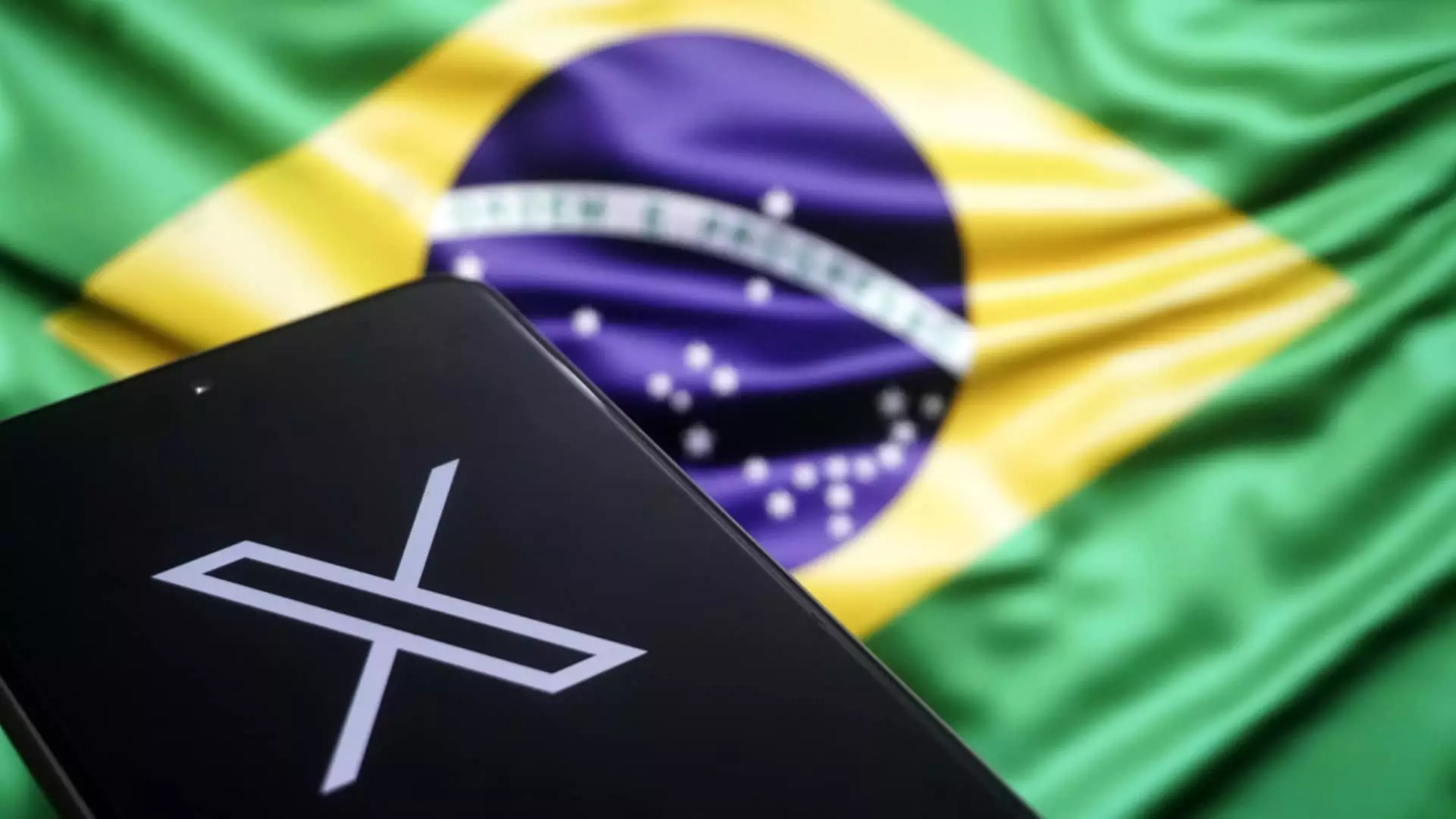After a prolonged legal standoff, Elon Musk’s social media platform, X, is set to resume operations in Brazil. This development comes after months of negotiations and court rulings led by Brazil’s Federal Supreme Court minister, Alexandre de Moraes. The favorable ruling for X is not simply a victory for the tech company; it also marks a significant moment in Brazil’s ongoing struggle with internet governance and the balance between free speech and compliance with the law.
The initial suspension of X on August 31 was a result of Musk and his company’s refusal to follow Brazilian laws designed to combat hate speech, violence incitement, and misinformation. Brazil’s internet regulations call for stringent measures, including the removal of problematic content and the appointment of a legal representative within the country. When Musk failed to comply, the court imposed sanctions that ultimately led to the suspension of the platform.
Reports have suggested that regulatory pressure and potential financial repercussions played a key role in Musk’s decision to comply with Brazilian law. Investors in Musk-led enterprises, facing financial risks associated with non-compliance, urged him to take action before the end of September due to the looming threat of daily fines and the freezing of business accounts for X and related companies like Starlink. This reflects a broader pattern of how the objectives of high-profile entrepreneurs must often align with regulatory frameworks to avoid substantial financial losses.
While Musk’s attitude towards Brazilian authorities was characterized by disparagement—comparing de Moraes to the fictional villain Voldemort and criticizing him as a “fake” judge—this episode also highlights the delicate interplay between big tech executives and national governments. The resolution signifies that no individual, no matter how influential, is immune to the laws and regulations of a sovereign nation.
In the midst of X’s suspension, rival platforms like Bluesky and Threads capitalized on the situation, rapidly gaining millions of users in Brazil. This illustrates how quickly consumer loyalty can shift in the volatile landscape of social media. Users, eager for alternatives while X was offline, were ready to embrace newer platforms that they perceived as viable substitutes.
This shift not only poses challenges for Musk’s X as it re-establishes its presence but also raises questions about the future of user engagement on social media. As these competitors grow, X must confront the reality that its brand reputation may have been tarnished, and many users may have developed a taste for alternatives that offer them a smoother, more compliant experience.
As X announces its return to Brazil, proclaiming pride in giving millions access to its “indispensable platform,” the company faces a complex future colored by this tumultuous chapter. The road ahead will be crucial for X as it seeks to reclaim its position in Brazil’s social media landscape while balancing the demands of regulators, stakeholders, and a wary user base.
Musk’s company is reiterating its commitment to uphold free speech, but the essential question remains: how will X navigate the intricate web of legal, ethical, and practical considerations that come with operating in a country with stringent internet laws? The unfolding narrative will undoubtedly provide insight into the ongoing evolution of social media governance on a global stage.


Leave a Reply